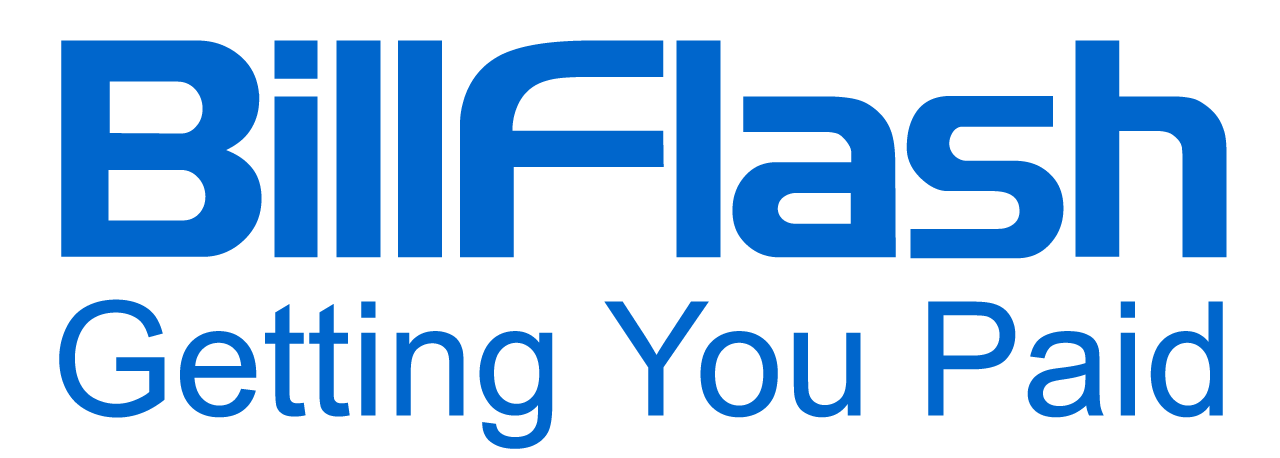Discover the intricate world of medical coding with our comprehensive guide.
Medical coding is a crucial aspect of the healthcare industry that plays a significant role in patient care, billing, and reimbursement processes. It involves translating medical diagnoses, procedures, treatments, and services into universal alphanumeric codes. These codes are used by healthcare professionals, insurance companies, and government agencies for various purposes. For example, tracking diseases, analyzing healthcare trends, and ensuring accurate billing can all be done with the codes.
Understanding Medical Coding

Medical coding is a complex field that requires a thorough understanding of medical terminology, anatomy, and healthcare procedures. Generally, it involves translating detailed medical documentation into standardized codes that accurately represent the patient's condition and the services they receive. This coding system ensures consistency and enables effective communication between healthcare providers and insurance companies.
Medical coding is an essential part of the healthcare industry, as it helps streamline the billing and reimbursement process. As a result of assigning specific codes to medical diagnoses, procedures, and services, healthcare providers can accurately communicate with insurance companies about the services provided to patients. This standardized language ensures that all parties involved have an understanding of the medical services rendered and the associated costs.
Definition and Importance of Medical Coding
Medical coding refers to the process of assigning universally recognized codes to medical diagnoses, procedures, and services. These codes provide a standardized language that facilitates accurate and efficient communication between healthcare providers, insurance companies, and other stakeholders. The accurate coding of medical information is crucial for proper reimbursement, tracking healthcare trends, and ensuring the delivery of quality patient care.
One of the primary reasons medical coding is important is because it ensures proper reimbursement for healthcare services. Insurance companies rely on these codes to determine the appropriate amount of payment for the services rendered. By accurately coding medical information, healthcare providers can avoid underpayment or denied claims. This ensures that they receive fair compensation for their services.
Another crucial aspect of medical coding is its role in tracking healthcare trends. By analyzing coded data, researchers and policymakers can identify patterns and trends in disease prevalence, treatment effectiveness, and healthcare utilization. This information is invaluable in shaping public health policies, improving patient outcomes, and allocating resources effectively.
The Role of a Medical Coder
A medical coder is a healthcare professional responsible for reviewing medical documentation and assigning appropriate codes based on the patient's diagnosis, treatment, and procedures. They ensure that the codes accurately reflect the medical services provided and follow established coding guidelines and regulations. Medical coders play a vital role in ensuring proper reimbursement, maintaining medical records, and supporting various healthcare initiatives.
Medical coders possess a deep understanding of medical terminology, anatomy, and physiology. They interpret complex medical documentation, including physician notes, laboratory results, and imaging reports. By carefully analyzing these documents, medical coders can accurately assign the appropriate codes that reflect the patient's condition and the services rendered.
In addition to coding, medical coders also play a crucial role in maintaining accurate and up-to-date medical records. They ensure that all coded information is properly documented and stored, allowing for easy retrieval and reference. Accurate medical records are essential for continuity of care, as they provide a comprehensive overview of the patient's medical history and treatment plans.
Furthermore, medical coders support various healthcare initiatives, such as research studies and quality improvement programs. By accurately coding medical information, they contribute to the collection of data that can be used to evaluate the effectiveness of different treatment modalities, identify areas for improvement, and enhance patient safety.
In conclusion, medical coding is a complex and vital component of the healthcare industry. It ensures accurate communication between healthcare providers and insurance companies, facilitates proper reimbursement, and supports various healthcare initiatives. Consequently, medical coders play a crucial role in this process, utilizing their knowledge and expertise to accurately assign codes and maintain comprehensive medical records. Without medical coding, the healthcare system would lack the necessary standardization and efficiency to effectively deliver quality patient care.
Different Types of Medical Coding
Medical coding encompasses various coding systems, each serving a specific purpose within the healthcare industry. Understanding these coding systems is essential for medical coders to accurately translate medical information into standardized codes.
Medical coding is a crucial aspect of the healthcare industry, as it allows for efficient communication and billing between healthcare providers and insurance companies. By using standardized codes, medical coders ensure that accurate information is conveyed, leading to proper reimbursement and tracking of healthcare services.
Current Procedural Terminology (CPT) Codes
CPT codes describe medical procedures and services provided by healthcare professionals. These codes are developed and maintained by the American Medical Association (AMA) and are widely used for billing and reimbursement purposes.
With CPT codes, healthcare professionals can provide a detailed and standardized description of procedures, making it easier for insurance companies to determine the appropriate reimbursement. This system streamlines the billing process and ensures that healthcare providers are fairly compensated for their services.
International Classification of Diseases (ICD) Codes
ICD codes classify and code diagnoses, symptoms, and medical conditions. These codes are maintained by the World Health Organization (WHO) and are widely used for statistical purposes, research, and epidemiological tracking.
ICD codes play a crucial role in healthcare by enabling healthcare providers to communicate consistent and accurate information about a patient's condition. These codes support the development of healthcare policies and interventions, as they provide valuable data for research and epidemiological tracking. By using ICD codes, healthcare professionals can contribute to the improvement of healthcare practices and the overall well-being of patients.
Healthcare Common Procedure Coding System (HCPCS) Codes
HCPCS codes identify specific items and services provided in the healthcare industry. These codes are broader in scope than CPT codes and include durable medical equipment, drugs, supplies, and other services not covered by CPT codes.
HCPCS codes enable effective communication and billing between healthcare providers and insurance companies. By using these codes, healthcare professionals can ensure that the items and services they provide are accurately documented and properly reimbursed. This system also facilitates the tracking of healthcare services, allowing for better analysis and planning within the healthcare industry.
In conclusion, medical coding is an essential component of the healthcare industry. The different coding systems, such as CPT codes, ICD codes, and HCPCS codes, serve distinct purposes and contribute to the efficient functioning of healthcare practices. By understanding and utilizing these coding systems, medical coders play a vital role in ensuring accurate communication, proper reimbursement, and improved healthcare outcomes.
The Process of Medical Coding

The medical coding process involves several steps, including the documentation of patient diagnoses and treatments, assigning appropriate codes, and reviewing the coded information for accuracy and compliance. This process ensures the effective communication of medical information and supports efficient billing and reimbursement.
Patient Diagnosis and Treatment
The medical coding process begins with the documentation of a patient's diagnoses and treatment plans by healthcare providers. This documentation includes medical records, test results, physician notes, and other pertinent information. Consequently, accurate and detailed documentation is essential for medical coders to assign appropriate codes that reflect the patient's condition.
Assigning and Reviewing Codes
Once the documentation is complete, coders review the records and assign codes based on the services provided and patient condition. This process requires a deep understanding of medical terminology, anatomy, and coding guidelines. After coding, the records are reviewed with coding regulations before being sent to insurance companies or government agencies for reimbursement.
Medical Coding Certifications
Obtaining a formal certification in medical coding enhances a coder's professional credibility and demonstrates their competency in the field. Several organizations offer certifications that validate a coder's knowledge and skills in assigning codes and ensuring compliance with coding regulations.
Certified Professional Coder (CPC)
The Certified Professional Coder (CPC) certification is among the most recognized certifications for medical coders. Offered by the American Academy of Professional Coders (AAPC), this certification validates a coder's proficiency in assigning accurate CPT, ICD, and HCPCS codes. CPC-certified coders possess a comprehensive understanding of medical coding principles and guidelines.
Certified Coding Specialist (CCS)
The Certified Coding Specialist (CCS) certification is offered by the American Health Information Management Association (AHIMA). This certification validates a coder's expertise in coding diagnoses and procedures in both hospital and outpatient settings. CCS-certified coders demonstrate proficiency in managing complex coding scenarios and ensuring compliance with coding regulations and documentation requirements.
Career Opportunities in Medical Coding

Medical coding offers diverse career opportunities in healthcare settings, insurance companies, government agencies, and consulting firms. As the healthcare industry continues to grow, the demand for skilled and certified medical coders is on the rise.
Job Prospects and Salary Expectations
The demand for medical coders is expected to rise with the increasing focus on data analysis and accurate reimbursement,. As a result, healthcare organizations are seeking experts who can help optimize revenue cycles, ensure compliance, and support quality improvement initiatives. The salary expectations for medical coders vary based on experience, certification, geographic location, and the type of healthcare organization.
Essential Skills for a Successful Medical Coder
To excel in the field of medical coding, professionals need to possess certain essential skills. For example, these skills can include an understanding of terminology, anatomy, and disease processes, attention to detail, and analytical thinking. Additionally, strong communication skills and a commitment to accuracy and compliance are also vital for successful medical coders.
In conclusion, medical coding is a critical component of the healthcare industry that ensures accurate communication, billing, and reimbursement. By understanding the various coding systems, the coding process, and the career opportunities in this field, individuals can gain insights into the essential role of medical coders and the importance of accurate coding in the healthcare industry.
Going Forward with BillFlash
With BillFlash, practices can go further by optimizing their revenue cycle, efficiently collecting past-due A/R, and providing patients with a convenient and secure payment experience. With a user-friendly interface and industry experts available for all your billing, payments and collections needs, BillFlash is the perfect solution for small practices.

